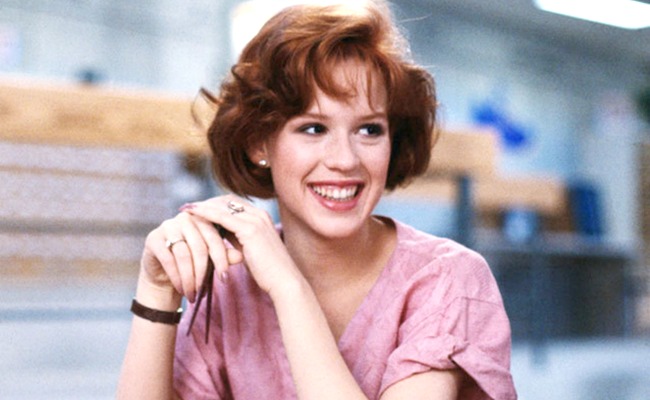
Following the cultural shift that accompanied the #MeToo movement and the progressive sensibilities that began to creep into the minds of many audience members before that, some movies have not aged as well as one would have hoped. The films of John Hughes are ones that have been constantly reexamined, and despite their unimpeachable status as classics, there are some elements to the films that are deeply troubling to thoughtful viewers. From Bender’s constant verbal abuse and inappropriately sexual touching of Claire in The Breakfast Club to the racial stereotypes and the fact that Jake Ryan basically hands over his drunk ex-girlfriend to be date raped in exchange for a pair of underwear in Sixteen Candles, there is a lot to unpack.
In a new essay for The New Yorker, frequent Hughes collaborator Molly Ringwald takes a thoughtful look at the films that made her an icon, partially inspired by the new strides taken against sexual harassment as well as a viewing of The Breakfast Club with her preteen daughter. Bender’s treatment of Claire and how he handled her rejection in particular stuck out to Ringwald. In a world where women are often attacked and even killed for rejecting a man’s advances, her distaste is not unfounded.
“Bender sexually harasses Claire throughout the film. When he’s not sexualizing her, he takes out his rage on her with vicious contempt, calling her ‘pathetic,’ mocking her as ‘Queenie.’ It’s rejection that inspires his vitriol.”
Ringwald eloquently raises her concerns about how these films affect how people view sexual harassment and misogyny, but she is careful not to downplay their cultural value or her complicated relationship with Hughes.
“No one in Hollywood was writing about the minutiae of high school, and certainly not from a female point of view. According to one study, since the late nineteen-forties, in the top-grossing family movies, girl characters have been outnumbered by boys three to one—and that ratio has not improved. That two of Hughes’s films had female protagonists in the lead roles and examined these young women’s feelings about the fairly ordinary things that were happening to them, while also managing to have instant cred that translated into success at the box office, was an anomaly that has never really been replicated.”
As with most art, viewers must wrestle with what they consume for themselves, just as Ringwald has done with what she helped create. The entire essay is well-worth reading and hopefully will help many more critically examine what they love.
(Via The New Yorker)






